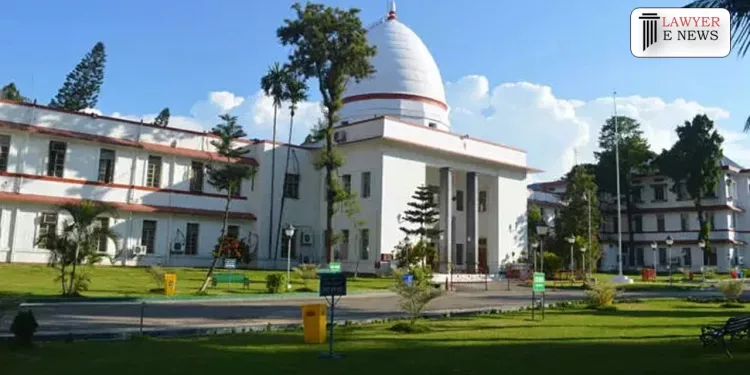Gauhati High Court Reaffirms Rejection of Compensation Claim: Bona Fide Passenger Status Must Be Proved

Court Emphasizes Requirement of Concrete Evidence in Railway Accident Claims
The Gauhati High Court has upheld the Railway Claims Tribunal’s decision to reject a compensation claim filed by Bikash Choudhury for the death of his son, Abhajit Choudhury, in a railway accident. The judgment, delivered by Justice Sanjay Kumar Medhi, reinforces the importance of proving bona fide passenger status and the necessity of credible evidence in such claims.
The appellant, Bikash Choudhury, claimed that his son, Abhajit Choudhury, had purchased a ticket at Naharkotia and boarded the 902 Dn Passenger train to Borhat. According to the appellant, due to the commotion among passengers, Abhajit fell from the train and succumbed to his injuries. The family requested no post-mortem examination, and a claim was subsequently lodged with the Railway Claims Tribunal. However, the Tribunal rejected the claim, stating that the deceased was not proven to be a bona fide passenger. This rejection was based on the absence of a ticket and the reliance on potentially biased witness testimony from a relative.
Bona Fide Passenger Status:
The court emphasized the crucial requirement of establishing bona fide passenger status in compensation claims. Justice Medhi noted that no ticket was produced to substantiate the claim that the deceased had boarded the train, and the sole witness was a relative, which could influence the reliability of the testimony. “To qualify as a passenger, one must have a valid ticket,” the judgment reiterated.
Burden of Proof:
Under Section 101 of the Indian Evidence Act, 1872, the burden of proof lies with the claimant to demonstrate that the deceased was a bona fide passenger. The court observed, “The initial burden of the applicants never shifts unless the respondent admits the assertions made by the applicants.” The Tribunal found that the appellant failed to provide sufficient evidence, as no records of ticket issuance on the stated date were presented.
Practical Impossibility:
The Tribunal had questioned the practicality of the claim that the deceased fell from the train and was run over by the same train, deeming it improbable without supporting evidence. The High Court concurred, stating that such claims require solid evidence, such as an inquest report, which was not provided in this case.
The judgment emphasized the principles of evaluating evidence in railway accident claims. Referring to previous rulings, the court highlighted the necessity of credible evidence, stating, “An accident involving a train does not automatically entitle compensation unless the conditions under the Act are met.”
Justice Medhi remarked, “The burden of proving that the deceased was a bona fide passenger lies squarely on the claimant, and in the absence of concrete evidence such as a valid ticket or corroborative witness testimony, the claim cannot be sustained.”
The Gauhati High Court’s dismissal of the appeal reinforces the stringent standards for evidence in railway accident compensation claims. By affirming the Tribunal’s findings, the judgment underscores the need for concrete and corroborative evidence to prove bona fide passenger status. This decision is expected to influence future railway accident claims, highlighting the critical role of reliable proof in securing compensation.
Date of Decision: 18th June 2024
Bikash Choudhury vs. Union of India






